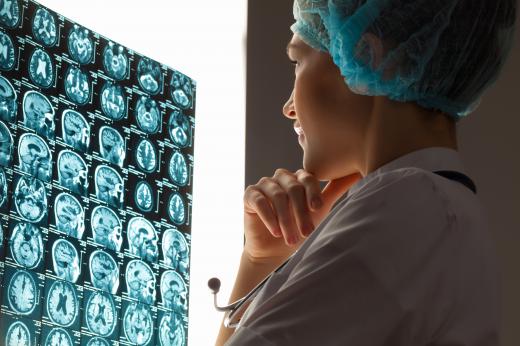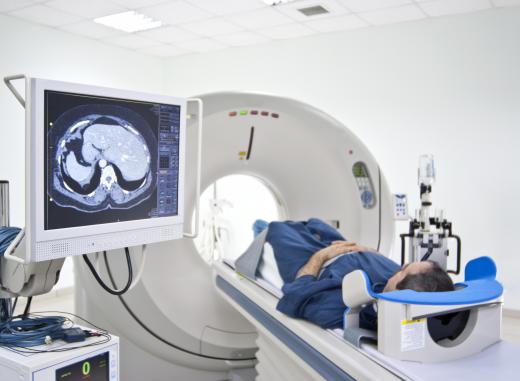What is a Neuroscience Lab?
 Mary McMahon
Mary McMahon
A neuroscience lab is a facility where people have access to equipment which can be used to study neuroscience. The facility may also be linked with a pool of potential study subjects, and have the capability to recruit subjects for specific studies. For example, a neuroscience lab on a college campus would probably have a large pool of undergraduate students available for studies, and the lab could utilize various connections to find people with specific neurological disorders, subjects in a particular age range, and subjects who may meet other study criteria.
One of the key elements of a neuroscience lab is the neuroimaging equipment, which is used to visualize the brain. This equipment can include positron emission tomography (PET) and functional magnetic resonance imaging (fMRI) scanners for imaging of the brain. A neuroscience lab may also have tools which are designed to explore visual and auditory processing, along with equipment which can be used to monitor heart rate and other physiological changes in study subjects.

In addition to holding equipment which can be used to gather data for studies, a neuroscience lab also usually has computers which can be used for data processing and data modeling. The computer systems need to be powerful and very sophisticated to deal with the volume of data involved, and they may be loaded with programs which have been designed specifically for the purpose of processing neuroscience data. Data storage is also a necessity, with both raw and processed data being stored on site and sometimes in another location for redundancy in the event that information is compromised or damaged.

Classically, neuroscience laboratories also include office space. Key laboratory staff and ranking researchers have their own offices, while visiting researchers and students may be obliged to share office space, depending on the lab's setup. Conference rooms and other public areas for meetings may also be available to people who work in the neuroscience lab.
Special equipment may be available in labs which focus on specific kinds of neuroscience, such as molecular neuroscience, social cognitive neuroscience, auditory neuroscience, and clinical neuroscience. Because researchers in a neuroscience lab work with human subjects, they are expected to adhere to strict ethical guidelines, which include reviews of their proposed research by an independent ethics board, informed consent for study participants, and adherence to general guidelines for working with human subjects. Some neuroscience labs may have an ethicist or reviewer on staff who is responsible for keeping the lab ethical and honest.
AS FEATURED ON:
AS FEATURED ON:












Discuss this Article
Post your comments